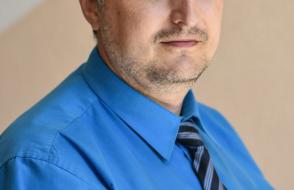Contacts all over the world, high quality of education, unique experience of education in European universities, wide career prospects – a lot of advantages gives its participants the European educational program Erasmus Plus.
Starting in 2014, it United all EU-funded exchange programs for young people and adults, became a common platform for 90% of European universities, and gave the opportunity for academic mobility to more than 4 million people.
Among the participants of Erasmus Plus-Gomel state University named after F. Skaryna. The head of the Department of universal history, associate Professor Stanislav A. Cherepko told about the implementation of the program at the faculty of history.
— Stanislav, how did your cooperation with Europe in the framework of the Erasmus Plus?
- First of all, with the establishment of partnerships with the University of Eberhard Karl in tübingen in early 2017. At first, these were only preliminary agreements and plans for the future. And by the end of the year, they got practical implementation: then my first trip to the University of tübingen took place, where I gave a course of lectures on the history of the middle ages for German students and postgraduates. Germany's response was the visit of Professor Olga Keller to the state University. The next meeting on the program will be held in July. We plan to determine the directions of further cooperation and set its priorities.
- What are the priorities?
— We would like to involve students and undergraduates of the faculty in international exchange programs. To go to an elite University in Germany for a semester, where, on the one hand, the atmosphere of ancient history reigns (the University was established in 1477), and on the other – modernity and innovation, to feel the energy of the place where famous poets and thinkers of the middle Ages studied, to work with the unique archives of the ancient library – the dream of any researcher. It is one thing to study history from textbooks, and quite another to plunge into its fascinating atmosphere.
- Let's hope that the project will be successfully developed. And what can you say about the advantages that it brings today?
- Cooperation, at whatever stage it is, is always profitable. This is communication with fellow scientists, exchange of ideas, knowledge and experience, borrowing the latest teaching methods. All this has a positive impact on the quality of the educational process. In addition, the University of Eberhard Karl is famous for its wide international contacts, which means that we have the opportunity to establish links with other universities. For example, in July we planned to meet with representatives of the University of Stuttgart. I would like to establish scientific cooperation and academic exchange with this German University.
— What other projects are you planning to implement in partnership with Eberhard Karl University?
- There is an idea to create a joint Belarusian-German center for historical research in Gomel. Such a center is already at the stage of opening in Minsk on the basis of BSU. Why not our University as a platform for such a promising and interesting project, where historical science will be successfully developed? This is an incentive for further active work, a great opportunity to improve the quality of education and career prospects of the graduates of the Skaryna state University.
Svetlana Hosei
Photo: Vladimir Chistik












